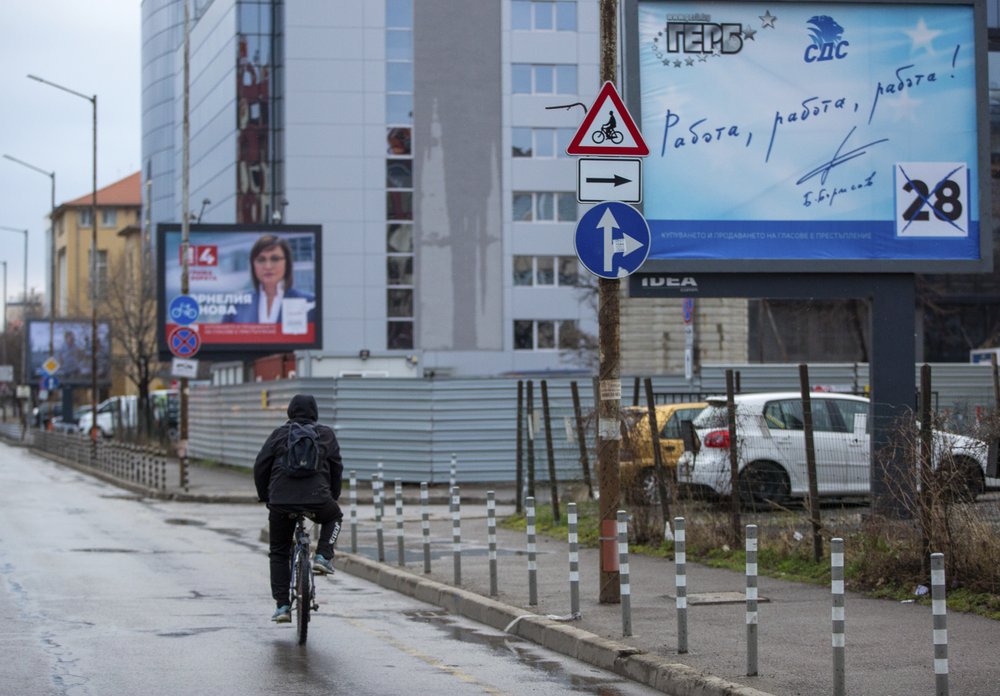

Bulgarians are heading to the polls on Sunday to cast ballots for a new parliament after months of anti-government protests and amid a surge in coronavirus infections.
The 12,000 polling stations opened at 7 a.m. and close at 8 p.m. for the 6.7 million eligible voters who are electing 240 lawmakers.
The vote is widely seen as a referendum on Prime Minister Boyko Borissov. The 61-year-old macho-style political maverick has led his center-right GERB party with an iron grip for more than a decade and now hopes to win his fourth term in office.
Support for Borrissov at home and aboard began to erode after thousands took to the streets accusing his government of meddling with oligarchs, failing to eliminate graft and poverty and overhaul the judicial system.
Western partners have repeatedly criticized the Balkan country for corruption and deficiencies in the rule of law and media freedoms.
Still, latest opinion polls suggest that while the vote may produce a fragmented parliament that will struggle to elect a new government, Borissov’s GERB party will end up as the biggest in the chamber. It was leading the polls with 5-10 percentage points ahead of its main challenger, the Socialists, but far from gaining an absolute majority to govern alone.
Several smaller groups, riding on the wave of a strong anti-government sentiment, are projected to pass the 4-percent hurdle to enter parliament for the first time. One of them, led by a popular TV entertainer, is tipped to rank third.
Despite opposition criticism over their ineffective response to the pandemic, the vote for the incumbents could be boosted by an expected lower turnout because of fears of infection and the absence of postal or proxy voting.
Exit polls will be announced immediately after voting ends. Preliminary results are expected around midnight Sunday.